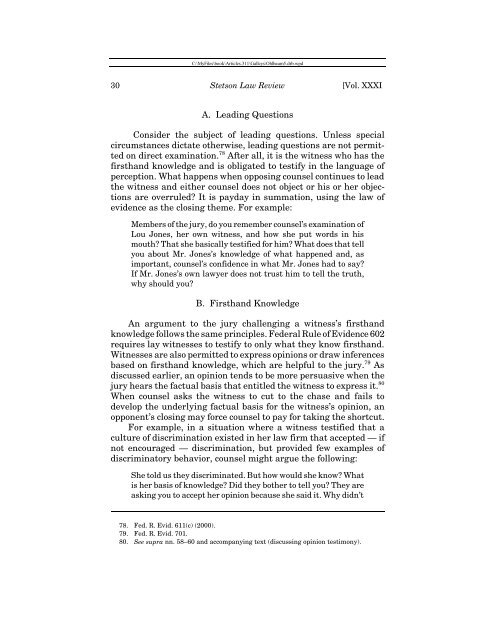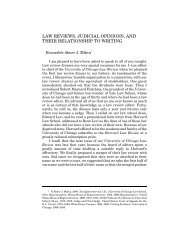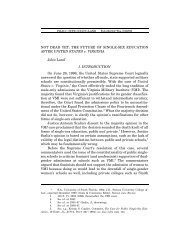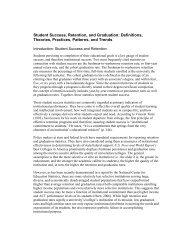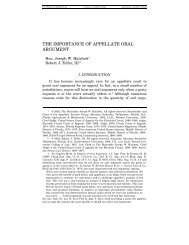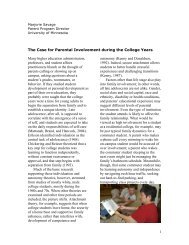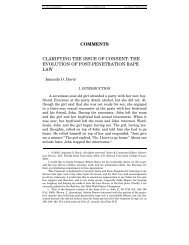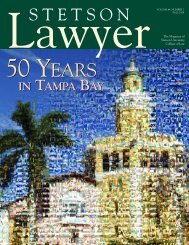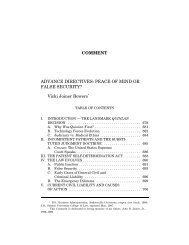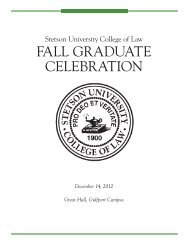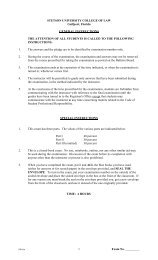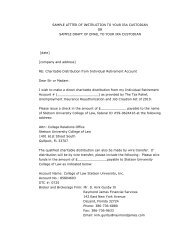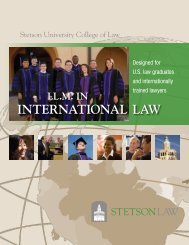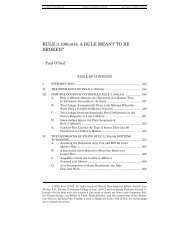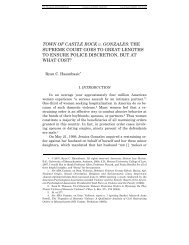Evidence-speak for Trial Lawyers - Stetson University College of Law
Evidence-speak for Trial Lawyers - Stetson University College of Law
Evidence-speak for Trial Lawyers - Stetson University College of Law
You also want an ePaper? Increase the reach of your titles
YUMPU automatically turns print PDFs into web optimized ePapers that Google loves.
C:\MyFiles\book\Articles.311\Galleys\Ohlbaum5.drb.wpd30 <strong>Stetson</strong> <strong>Law</strong> Review [Vol. XXXIA. Leading QuestionsConsider the subject <strong>of</strong> leading questions. Unless specialcircumstances dictate otherwise, leading questions are not permittedon direct examination. 78 After all, it is the witness who has thefirsthand knowledge and is obligated to testify in the language <strong>of</strong>perception. What happens when opposing counsel continues to leadthe witness and either counsel does not object or his or her objectionsare overruled? It is payday in summation, using the law <strong>of</strong>evidence as the closing theme. For example:Members <strong>of</strong> the jury, do you remember counsel’s examination <strong>of</strong>Lou Jones, her own witness, and how she put words in hismouth? That she basically testified <strong>for</strong> him? What does that tellyou about Mr. Jones’s knowledge <strong>of</strong> what happened and, asimportant, counsel’s confidence in what Mr. Jones had to say?If Mr. Jones’s own lawyer does not trust him to tell the truth,why should you?B. Firsthand KnowledgeAn argument to the jury challenging a witness’s firsthandknowledge follows the same principles. Federal Rule <strong>of</strong> <strong>Evidence</strong> 602requires lay witnesses to testify to only what they know firsthand.Witnesses are also permitted to express opinions or draw inferencesbased on firsthand knowledge, which are helpful to the jury. 79 Asdiscussed earlier, an opinion tends to be more persuasive when thejury hears the factual basis that entitled the witness to express it. 80When counsel asks the witness to cut to the chase and fails todevelop the underlying factual basis <strong>for</strong> the witness’s opinion, anopponent’s closing may <strong>for</strong>ce counsel to pay <strong>for</strong> taking the shortcut.For example, in a situation where a witness testified that aculture <strong>of</strong> discrimination existed in her law firm that accepted — ifnot encouraged — discrimination, but provided few examples <strong>of</strong>discriminatory behavior, counsel might argue the following:She told us they discriminated. But how would she know? Whatis her basis <strong>of</strong> knowledge? Did they bother to tell you? They areasking you to accept her opinion because she said it. Why didn’t78. Fed. R. Evid. 611(c) (2000).79. Fed. R. Evid. 701.80. See supra nn. 58–60 and accompanying text (discussing opinion testimony).


